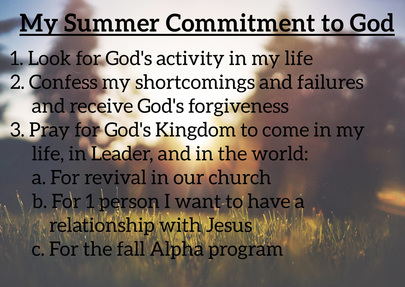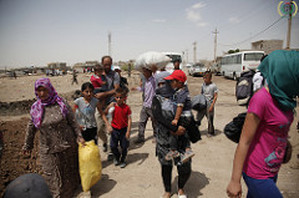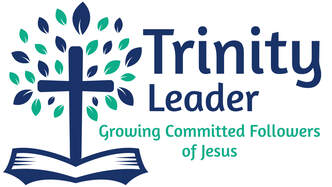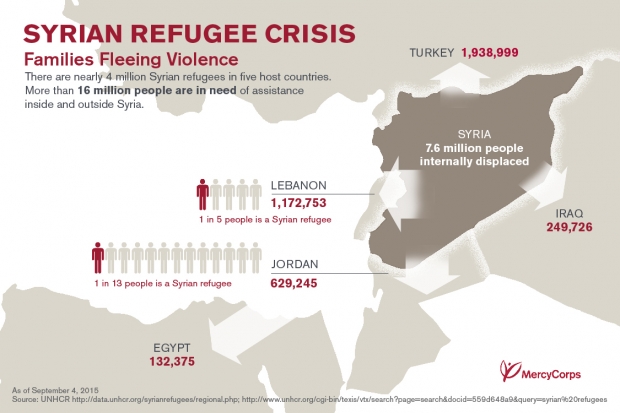 I’ve been doing a lot of thinking recently about learning probably because my oldest child will be starting Kindergarten tomorrow. Is she leaving the carefully guided environment of our home in a position to succeed in learning everything she needs to in school? Sure, we’ve read thousands of books (no exaggeration, take a look at her summer reading log!), she’s done 2 years of playschool, and we’ve worked on writing, drawing, and reading. But as I stand on the brink of a new chapter in my life, I wonder is it enough? How will she turn out when she graduates high school? Will she love acquiring knowledge and desire to learn more? All parents want the best for their kids and there is always going to be some wondering whether we’ve done all we can to set our children up to excel in school. But I wonder how much thought we give to our children’s Christian education. We’ll help our kids with homework and we’ll bend over backwards to help our kids exceed in sports but have we set our kids up for a life of loving Jesus (which is eternally more important than advanced algebra or being able to score a goal in hockey)? I’m not advocating for lessening educational requirements in favour of growing in spiritual knowledge because the two are actually inseparable. What I am advocating is that we parents (and I’m preaching to myself here) should spend equal care and attention to fostering our kids’ spiritual growth. Bringing your kids to Sunday School and church is an important part of helping your child grow spiritually and I’m thankful for people who commit themselves to teaching about Jesus. But that is only 2 (and a half) hours out of 168 hours in a week. They’re in school for 30 hours a week and watching TV (if studies are to be trusted) for 35+ hours a week. Martin Luther famously believed that the church was not the primary place where children would learn about faith. He argued that the greatest impact on a child’s faith would be in the home, “such a house is actually school and church, and the head of the household is a bishop and priest in his house.” It is after all in the home where habits are developed and where children how to be people as they watch their parents. As parents, we are called to be the pastors to our homes; to teach our kids about Jesus, to read Scripture, to pray with them, and to model a Jesus following life to them. So as the kids start back to school this year and your brain gets filled with balancing homework, sports, and other activities, take some time to think about how you are teaching your kid about faith. It is the most important thing you can pass on to your children!
2 Comments
 This morning in my devotions, God spoke to Job saying, “ ‘Where were you when I laid the foundation of the earth? Tell me, if you have understanding?’” (Job 38:4). The rhetorical line of questioning continues for several chapters. Each question God asks of Job is designed to remind Job that Job is not God and does not possess His wisdom and power. I am struck once again by how big God is and how limited my understanding of the world and my life actually is. I’ve been thinking about this phrase especially in light of this summer’s rain. We started the year thinking it would be dry and planned accordingly only to live through an historically wet year. We look out and see the promise of unimaginably abundant crops only to see them get struck down by hail and waterlogged by downpours. Even as you think about what could have been, grow frustrated with more rain, and wait to get into the fields, may you be reminded of the bigness of God that He is far wiser than you (as hard as that may be to admit) and that He has a plan for His creation (including you!) even when we can’t plainly see it. Take comfort in knowing that God has been here from before the beginning of time and that He promises to care for and provided for all your needs.  We face many decisions in our lives. Some are pretty insignificant and others may have life altering ramifications. Making decisions can be one of the most difficult things we as Christians must deal with because there is an added responsibility placed on us. We don’t make decisions based solely on what seems best to or for us in the present but based on something bigger. One of the highest callings we have as a follower of Jesus is to bring glory to God, therefore all that we do ought to bring glory and honor and praise to our God. I (and I imagine others do as well) often struggle with the question whether I am making a decision that God would have me make. There is a spectrum of decision making that on one extreme includes little of God in the decision making process and which goes to the other extreme of not being able to make any decision without a clear divine instruction. The scale of the choice influences how much consideration we give it. It probably matters little to God whether I choose a Kit-Kat as opposed to a Coffee Crisp, after all God has uniquely given us humans the ability to think and have free-will. But if I am deciding whether to buy a new house or to move to a new community, I will do my best to discern God’s leading and wait for clear direction. The scope of the decision often impacts the amount of seeking God’s direction and leading that we do. This comes down to a pretty simple question: How much of God is enough in making decisions? (As if that can be measured!) I was struck this week by Colossians 2:6 which says, “Therefore, as you received Christ Jesus the Lord, so walk in him, rooted and built up in him and established in the faith, just as you were taught, abounding in thanksgiving.” While this is an encouragement to continue in a life following Jesus, it also speaks to knowing God: Walk in Christ. That is the key to decision making that isn’t empty of God or paralyzing while we do nothing as we wait for God. When you’ve spent a considerable amount of time with someone (like your spouse) you begin to know what they’re thinking and how they will act. The same is true with God. The more time spent with Him in prayer and in the Word, the more His ways will be known to you. As you grow with God, the less you have to stop and anxiously wait or exclude God from whatever decision you’re facing. His ways become yours as you walk with Him, you develop a sense of knowing even as you seek His face in all you do. So walk in him.  If you are like me, you might struggle with finding time to be with God throughout the week. I know I should do devotions, read my Bible, and pray but many times it just doesn’t get done (or isn’t done as well as I’d like). While this is not a new problem for many people, it is growing more acute as our lives fill up with other things, too often God is the first one bumped from our schedule. Perhaps the best way to make God a priority in our lives is to build Him into our schedule. We are a people who thrive on the predictability of a patterned life. It is well noted that children thrive, feel more secure and confident when there is a daily routine in place where they can anticipate when is coming next. Even God built a pattern into creation, “so God blessed the seventh day and made it holy, because on it God rested from all his work that he had done in creation” (Genesis 2:3). Some take this patterned life to the extreme (see Sheldon Cooper on The Big Bang Theory) while others may not even recognize their need for predictability in life. Live into a patterned life with Jesus at the centre! It is not my intent to guilt you into doing anything, I simply want us to be honest with each other that setting apart time to rest and enjoy the company of God does not come naturally in our sinful world. First, establish a precedent of being in church every Sunday. It is great that you watch Christian programing but it doesn’t replace actually being with your fellow believers worshiping God. We need each others support and encouragement. Taking an hour and a half out of your week to worship acts as a foundation for your spiritual habits throughout the week. Our worship services intentionally look similar every week so that the patterns of worship become part of you. The pattern of singing, confession, hearing Scripture, and prayer is demonstrated each week as a model for our worship life the other six days. Our liturgical pattern helps us enter into God’s story while orienting our lives around God. Weekly worship is critical for our spiritual health and vitality.
Second, set apart some time each day to be in God’s Word and prayer. Some find it helpful to do this in the morning while others like to do it at night. Experiment with what time works best for you but be sure to schedule in a time, write it in your day planner or put it in your phone. There are many ways that you can be in Scripture: maybe you start in Genesis and read a few chapters a day, or you start with the Gospel of John and hear the story of Jesus, or perhaps you follow a devotional book that leads you to different Scriptures each day. No matter how you structure your time, allow God to lead you into His Word. Also during this time be sure to pray. Pray not just for your needs but for the needs of others and for the church. Offer prayers of thanksgiving for God’s provision and action in your life. Confess your failures and receive God’s words of pardon. Simply be quiet as you allow God to speak to you words of encouragement, direction, or correction. Just take time to be with and to hear from God in prayer and His Word. One way we are encouraging our church to be attentive to God through prayer and the Word is with Trinity’s Summer Commitment. It is not my intent to guilt you into doing anything, I simply want us to be honest with each other that setting apart time to rest and enjoy the company of God does not come naturally in our sinful world. In fact, sin is continually enticing us away from God. As Christians, we always ought to do what we can to encourage one another into a deeper relationship with Jesus. So in these slower summer months when schedules are easier to manage, let me challenge you to establish a pattern of worship in your life: make it a priority to be in church each week, devote a few minutes each day to time in God’s Word and prayer, take time to simply rest in God’s creation free from distractions and stress, and think about Trinity’s Commitment to God this summer. Some resources to help build God into your routine: Family Prayer- These devotions follow the structure of daily prayer and can be used in the family (Anglican Church of North America) Common Prayer: A Liturgy for Ordinary Radicals (For purchase on Amazon) Daily Text- A new prayer and Scripture readings every day of the year (Moravian Church)  This past Sunday we talked about the certainty of the return of Jesus and what that means for us now and in the future. In Bible Study, a question was asked about what it means to hasten the coming of the day of the Lord from 1 Peter 3:11-12: “Since all these things are thus to be dissolved, what sort of people ought you to be in lives of holiness and godliness, waiting for and hastening the coming of the day of God..” The reality in which we live as Christians is that the Kingdom of God has already been established on earth but has not yet been established in its fullness. The only way Jesus’ life on earth makes any sense is if He came inaugurate His Kingdom, an entirely new way of doing things which even His disciples didn’t fully grasp. The only way Jesus’ death and resurrection make any sense is if they were the decisive acts in human history in which the kingdom of sin, death, and the devil were once for all defeated and a new kingdom was established. The only way Jesus’ ascension makes any sense is if He is with God the Father reigning over an actual kingdom in which all believers participate. The Kingdom of God is here. The church is its visible presence on earth until that day when Jesus comes again; that day for which we as kingdom people long. If this is the reality to which we are called into by the Spirit of God, how ought we to live? Should our lives not look radically different as a result of us being partners in Jesus’ kingdom? Peter gives us a hint when he says, “what sort of people ought you to be in lives of holiness and godliness…” Holiness and godliness are words thrown around often negatively, in connection with a rigid legalism or as a target of criticism of the hypocritical church that can’t live up to its own standards. While we can’t live a holy and godly life in our own power, it is nonetheless the ideal God has had for His people for thousands of years. Throughout the Old Testament, Israel is continually being called to be holy; to be the people God formed them to be: a people of covenant and a people set apart as a city on a hill. God called Israel out of all the other nations so that they might be different, that people would look at how different their lives are because of God and desire that for themselves. The same call to holiness is extended to God’s people throughout the New Testament as well. Peter, in his first book, instructs his readers using the command from Leviticus 11:44, “Be holy as I am holy.” Later, he says, “But you are a chosen race, a royal priesthood, a holy nation, a people for his own possession, that you may proclaim the excellencies of him who called you out of darkness into his marvelous light” (1 Peter 2:9). In being a people living holy and godly lives, set apart for the glory of God, we look different, we act different, and we proclaim the Gospel with our lives. The proclamation of the Gospel through our actions and words is central to hastening of the coming of the day of the Lord. Jesus declares in Matthew, “And this gospel of the kingdom will be proclaimed throughout the whole world as a testimony to all nations, and then the end will come” (24:14). And Peter expands this by saying, “The Lord is not slow to fulfill his promise as some count slowness, but is patient toward you, not wishing that any should perish, but that all should reach repentance” (2 Peter 3:9). God’s desire is that all people would have the opportunity to hear the Gospel, to have their hearts pierced by it bearing repentance and life in Jesus. Until the Gospel has been proclaimed to all, giving all an opportunity to have their hearts transformed by it, Jesus will not come. So, how do we hasten the day of the coming of the Lord? By being a Gospel people, living and proclaiming that the Kingdom has come in the death and resurrection of Jesus, and by pointing to the hope that is ours when Jesus comes again ushering in the fulfillment of His Kingdom in the new heavens and new earth.  By now, you’ve likely seen the Tweet pronouncing the wildfire which decimated a large portion of Fort McMurray as a Karmic #ClimateChange Fire. The reasoning is as follows: the oil sands cause pollution in a vastly disproportionate way (which evidence shows is false) therefore nature and/or God is getting back at the oil sands for the damage caused the planet. Is this a case of what goes around, comes around? Is that even a Christian way of thinking? In another way, whenever a natural disaster afflicts a particular region, there are always some who are quick to pronounce the tragic event as God’s wrath or judgment being poured out upon an unrepentant people. Certainly, God has worked through cataclysmic events throughout history as a way of calling His people back to Himself. Many take issue with this premise because it does not seem to be consistent with how God is revealed in the New Testament; we’ve so fully embraced a God of unconditional acceptance and tolerance that we forget that God is holy and desires holiness from His people. Part of God’s character (which must remain unchanging while His actions can change as He chooses to deal with issues in different ways) involves wrath, not in a hateful or vengeful way but as a means of preserving His holiness. Christians love Jesus because He took upon Himself all of God’s wrath toward us as He satisfied the sentence of death placed on our lives because of sin. Is God’s wrath the context we as Christians ought to use to reflect on the current situation in Fort McMurray? I will be the first to admit that there are no easy answers when trying to reconcile why bad things happen. And I am fully aware that any answer given may perpetuate hurt or cause offense when heard in the midst of grief and despair; I am trying to avoid this while helping us to see God in the midst of the devastation. With that disclaimer, I offer a few reflections on the wildfire in Fort McMurray (which is also applicable to any other event which causes us to stop and wonder, ‘why?’. First, we need to be clear about what this disaster isn’t
Photo Public Domain Author: U.S. Department of Agriculture; Source: Flickr: 20120620-FS-UNK- 0009  From time to time, we in small towns suffer from an inferiority complex; we are just a small town without many resources, fancy infrastructure, or the population to make a difference. Don’t get me wrong: we work hard and are very generous with our time and resources, and I can’t imagine a better place to raise a family. But we have big city envy. The same is true in the small town church, where we fall prey to that same thinking—we want to look like the big city church with lots of programs and nice stuff but think we don’t have the resources to do it. Yesterday (March 13), the Leader & District Ministerial hosted a Mission Connection event which brought representatives from 14 mission agencies that are doing work locally and abroad. My heart is filled with joy and excitement after hearing stories of the work God is doing in people’s lives across the globe. The most encouraging thing for me was the local connection. Each and every one of the organizations had some local connection: a person serving on the board, involved as a missionary or volunteer, funds that had been raised locally and sent out, seminars offered here that have brought change in people’s lives, or ideas cultivated in Leader and are now a reality. It can be surprising the impact that little old Leader has/is having in God’s Kingdom. In talking with the representatives at this event I heard repeatedly the amazement at the local church’s missional mindedness which was evidenced in having 14 organizations make the effort to come to Leader. I also heard time and again the impact of the people of Leader’s generosity and heart to see God’s Kingdom come. I was especially moved by the story Tom Brook, representative from Canadian Lutheran World Relief, shared of his travels in Ethiopia. In trying to describe what country he came from, he simply said Canada to see if the people were familiar with it. The people in this region of Ethiopia were very familiar with it and immediately said, “Oh yes, Leader, Saskatchewan.” You see, their lives have been changed through the funding supplied for relief and food sustainability projects in the area and the mission trips taken. Leader has a reputation all the way to Ethiopia as being a kind, generous, and missional community. During the event, my mind was drawn to John 1:46-47 where Nathanael expresses doubt to Philip about the call Philip just received to follow Jesus. “Nathanael said to him, ’Can anything good come out of Nazareth?’ Philip said to him, ‘Come and see.’” We may be tempted to wonder, ‘can anything good come from Leader?’ I pray that Mission Connection would be the ‘come and see’ moment for the church in Leader, that indeed something (and many things) good can come from this small, out of the way place. It is my hope that this event will have far-reaching consequences for the ministry of the church in Leader that we would see and be excited for the work God has entrusted to us. May our ministry and work be encouraged and our resolve strengthened to see God’s Kingdom come in Leader and around the world. Remember that you are dust, and to dust you shall return.
These are the words that get spoken over us on Ash Wednesday as our foreheads are marked with the sign of the cross in ash. I’ve always loved the rich imagery and symbolism tied together in this event: the mixture of ash and oil; the tension of (new) life and death; the reminder of our mortal immortality. These are important tensions with which each of us as Christians live. Ash Wednesday speaks to our human existence in a profoundly powerful way: we have it right there on our forehead the reminder of our sin and God’s perfect answer to it. As a pastor, I get to enter into people’s humanity in a way not everyone does. I experience the joy of a family celebrating God’s work in baptism. I see people’s thankfulness when they come to the Table and are refreshed by Jesus’ body and blood. I sense the conviction and remorse as I place ashes upon my brothers and sisters’ heads. I love that I am welcomed into those intimate moments of people’s journey with God. And yet, in a very real sense, I am able to maintain some distance that is until last night when my two oldest children (4 and 2 years old) came forward on their own and I had to look them in the eyes, speaking these words over them: Remember that you are dust, and to dust you shall return. In that moment I was overcome by my emotions but at a deeper level had an encounter with God. All the realities of Ash Wednesday came to a head at that moment. The reality that my children are sinners and contend with desires that pull them away from God. The reality that my children have and will face the effects of the fall: hurt, brokenness, despair; the reality of my own children’s mortality. But, inseparable from all of these realities, the greater reality. Yes, my children (and I) are sinners and face temptation that pulls them away from God; but God’s grace is greater and the Holy Spirit dwelling in them is stronger. Yes, my children (and I) have and will live with hurt, brokenness, and despair from the fall; but in Christ they have forgiveness and hope. Yes, my children (and I) are finite and will one day face death; but Christ took our eternal death on Himself and they have the promise of resurrection life. Last night, Ash Wednesday became real to me in a new way. May we learn to embrace these very real tensions in our lives. Though we have times of doubt and struggle, when our sin threatens to overwhelm us, we have a greater reality in Jesus, one that offers hope, strength, promise, and life.  How do we as Christians respond to events such as the terrorist attack in Paris on Friday? That is one part of the question that I’ve been wrestling with while the other goes deeper. How do we respond to the growing threat of the radicals within Islam? At first look, you may be expecting a complicated answer and certainly there are important nuances of which we must be aware. But the answer is surprising simple and it comes from the Gospel reading for this past Sunday. We are reminded in Mark 13 that first of all, we should not be surprised by this event. We may be shocked by how brazen the attacks were or we may have been startled that terrorism once again is striking close to home but we should not be surprised. Jesus tells us that we ought to expect these sort of things as they “must take place, but the end is not yet. For nation will rise against nation, and kingdom against kingdom. There will be earthquakes in various places; there will be famines. These are but the beginning of the birth pains” (Mark 13: 7-8). Our Lord continues by saying, “And you will be hated by all for my name’s sake. But the one who endures to the end will be saved” (Mark 9:13). The unsettling reality we must live with is that we, as Christians, will be hated by the world—everything and everyone that is opposed to God. Does that mean we ought to cower back, change our message or lifestyle, or feel sorry for ourselves? No! For we know that the victory is ultimately won. Jesus is victorious! God is working to bring His peace and presence to this hurting and broken world. In times such as these we ought to look ahead and long for that day when Jesus returns triumphant. For we know that the victory is ultimately won. Jesus is victorious! But we can’t sit back and wait for that to come. God has called us as His people to be His agents in establishing His perfect peace, rule, and reign on the earth. So while we wait we must confront the question at the beginning, how do we as Christians respond to these terrorist attacks?
Loving our enemies also does not mean that we should harbour hate and fear against refugees. Just as not all Muslims are radicals, not all (in fact the overwhelming majority) of refugees are not terrorists. They simply are people trying to survive and keep their families safe; it is not a choice they would have liked to make for themselves. I pray that we would be mindful of these things as the situation continues to unfold. There are many emotionally charges responses we as human might want to take but we as Christians must remember our command to love God and our neighbours even to the point of death. Picture from Pixaby. License CC0. Public Domain
 If you’ve paid attention to the news recently, you’ll know that there is a humanitarian crisis spreading across the Middle East and Europe. Millions of people are being displaced from their homes in Syria and Iraq because of political and religious unrest and persecution. The numbers are absolutely staggering: While we in North America are confronted with these enormous numbers representing people who are clinging to survival and are inundated with pictures of children and families taking great risks to escape the violence, our first response can be one of paralysis. We may think, ‘how can we possibly make a difference?’ Yes, the scale of this crisis is beyond pale which makes it tempting to give up before taking any action. But the good news we as followers of Jesus cling to is this: our God created this world, is bigger than it, is active in it, and continues to love and redeem it. It can seem like nothing could possibly make a difference to this situation: it is out of control and unstoppable. Throughout history, God has intervened in precisely these moment—perhaps not when or as we think he ought but nonetheless He has been at work and is at work. But the good news we as followers of Jesus cling to is this: our God created this world, is bigger than it, is active in it, and continues to love and redeem it. Whenever we pray the Lord’s Prayer we ask for God’s Kingdom to come and His will be done on earth as it is in heaven. That is precisely how we should pray for Syria, for the refugees, and for those accepting the displaced people. May God’s Kingdom—that upside Kingdom where the rich and powerful of this world bow at the name of Jesus—come and be established in the villages, towns, and cities of Syria. And may God’s Kingdom come and be established in the hearts and minds of those who are in a position to help (especially the western world) that we might boldly open our doors to the poor of this world. So what can we possibly do?
For more information, check out these resources: Canadian Lutheran World Relief- http://clwr.donorshops.com/product/685132A/syrianrefugeerelief.php or http://www.clwr.org/What-We-Do/refugee-resettlement.cfm Mennonite Central Committee- http://mcc.org/learn/more/syria-iraq-crisis-response Top Photo: IHH: Humanitarian Relief Foundation. https://www.flickr.com/photos/ihhinsaniyardimvakfi/9577266320. Used under Creative Commons License.
|
AuthorPastor J-M shares some occasional thoughts and musings on our life together as followers of Christ. The views are his own. Archives
October 2023
Categories
All
|
- Home
- About
-
Learning & Growing
-
Sermons
>
- 1 Samuel
- Lent
- Spiritual Conversation
- Advent
- 1 Timothy
- Single Messages
-
Older Sermons
>
- Judges
- Joshua
- Galatians
- Lamentations
- 1 Peter: Living Hope
- Acts
- What Does This Mean?
- Gospel Identity: Gospel Living
- Nehemiah
- Questions of Faith
- Proverbs
- Hebrews
- Sermon on the Mount
- 1 Thessalonians
- Psalm 23: Walking with the Lord
- I Believe: The Apostles' Creed and a Living Faith
- 1 Corinthians
- Difficult Questions
- Genesis: God's Endless Faithfulness
- The Lord's Prayer
- Mark
- Genesis
- Bible Studies >
- Kids
- Blog
-
Sermons
>
- Worship Videos & Resources
- Contact
- Home
- About
-
Learning & Growing
-
Sermons
>
- 1 Samuel
- Lent
- Spiritual Conversation
- Advent
- 1 Timothy
- Single Messages
-
Older Sermons
>
- Judges
- Joshua
- Galatians
- Lamentations
- 1 Peter: Living Hope
- Acts
- What Does This Mean?
- Gospel Identity: Gospel Living
- Nehemiah
- Questions of Faith
- Proverbs
- Hebrews
- Sermon on the Mount
- 1 Thessalonians
- Psalm 23: Walking with the Lord
- I Believe: The Apostles' Creed and a Living Faith
- 1 Corinthians
- Difficult Questions
- Genesis: God's Endless Faithfulness
- The Lord's Prayer
- Mark
- Genesis
- Bible Studies >
- Kids
- Blog
-
Sermons
>
- Worship Videos & Resources
- Contact


 RSS Feed
RSS Feed